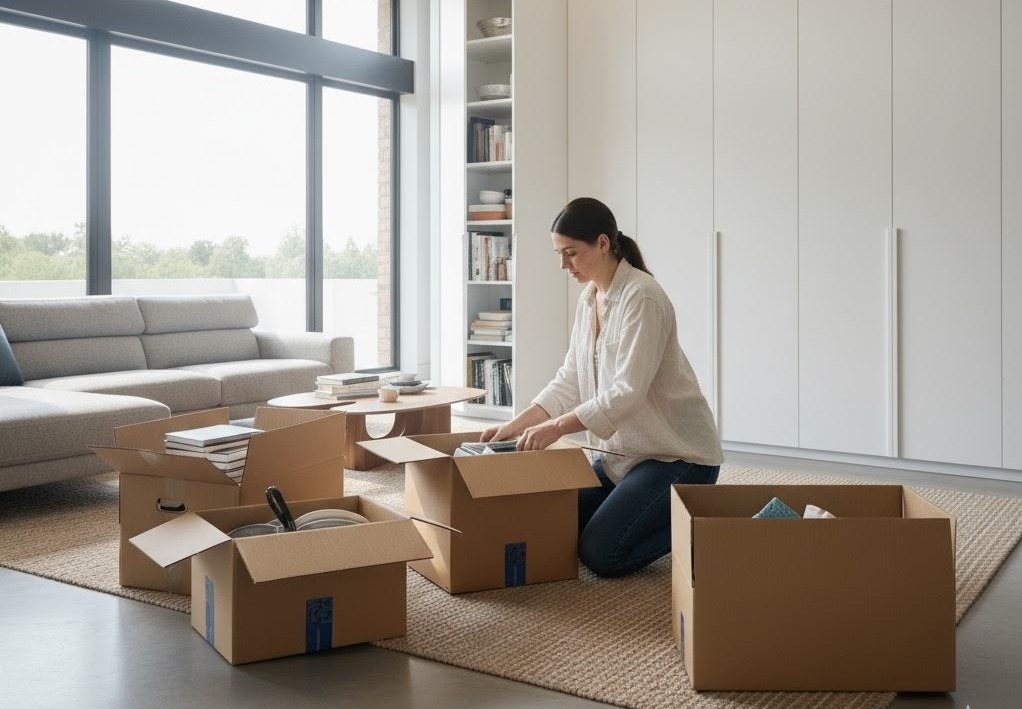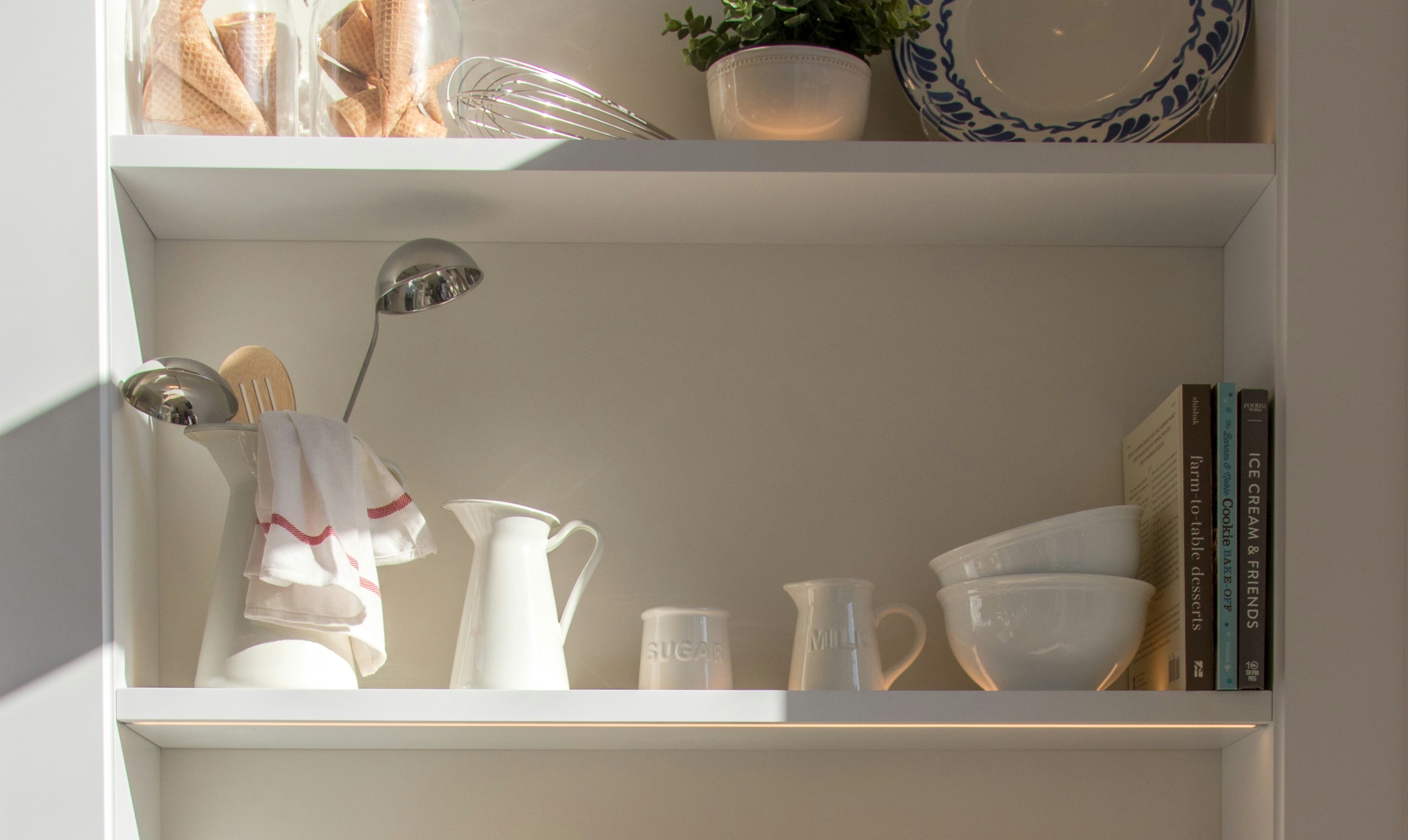A lot has been circling lately around the conversation of ADHD. There seems to be a wide spectrum of ADHD, from some who feel rarely disrupted by their brain patterns and those who feel the struggle minute-to-minute. If you find yourself anywhere near the latter, we wrote this post for you and we have great news: you don't need a perfectly pristine, magazine-ready home. You need a set of systems built specifically for the way your brilliant brain works. It’s all about working with your focus and motivation, not against it.
Here are a few game-changing, ADHD-friendly strategies to bring calm and function to your space:
1. Master the Transition: The Art of Task Stacking
Switching from one task (like relaxing) to another (like cleaning) can feel like hitting a brick wall. Our brains prefer to keep doing the exciting thing (hyperfocus!) or keep avoiding the boring thing (lack of dopamine).
The Fix: Link the New Habit to an Old One.
- The Coffee-Dishwasher Link: Try linking a small chore to an existing, non-negotiable habit. For example, while your coffee brews in the morning, empty the dishwasher. When your coffee is ready, the chore is done. That transition time is now productive, not just 'waiting.'
- The Body Double Technique: Find an accountability buddy. This could be a friend you call on speakerphone while you fold laundry, or a virtual group you join just to work on separate tasks together. The presence of another person provides a low-pressure source of accountability and external motivation.
2. Stop the Spiral: The 5-Box Method
If you've ever started decluttering and immediately gotten stuck agonizing over a single item, you've experienced the brain block we call analysis paralysis. The decision-making required for decluttering can be absolutely exhausting for the ADHD brain.
The Fix: Eliminate Agony with 5 Designated Spots.
Instead of trying to decide the final destination for every item, you only need to decide which of five boxes it belongs in. Grab five containers (boxes, laundry baskets, bags—anything works!) and label them clearly:
- Keep Here: Items that belong in this current space.
- Belongs Elsewhere: Items that belong in another room (the kitchen, the bedroom, etc.).
- Donate/Sell: Items you no longer need or want (focus on letting go).
- Trash/Recycle: Junk and literal trash.
- Not Sure: This is the MVP box. If you can’t decide in 5 seconds, drop it here.
- Pro Tip: Work through your pile item-by-item, making snap judgments. Once the room is clear, deal with the first four boxes immediately. The 'Not Sure' box gets sealed up and stashed away for 30 days. If you haven't needed anything in it after a month, you can donate the whole box without opening it! It's a promise to your future self that you can handle the decision later.
3. The 15-Minute Micro-Sprint
For projects that feel huge—like cleaning the garage or organizing a desk—the desire for perfection quickly leads to analysis paralysis.
The Fix: Time Blocking & Immediate Stopping.
- Set the Timer & Sprint: Set a timer for 10 or 15 minutes. Focus on one tiny area (like a single shelf or one corner of the desk). When the alarm goes off, STOP. Immediately. Even if you're mid-sentence or mid-sorting.
- Why Stop? Stopping when the task isn't quite finished creates a slight sense of incompleteness. For the ADHD brain, that unfinished loop often provides the motivational push needed to easily restart the next day. You get to leave the task when the dopamine is still high, instead of pushing until burnout.

4. The Power of Visibility
The biggest challenge for the ADHD brain is object permanence. If you can’t see it, it doesn’t exist. This is why traditional drawers and cabinets often become Black Holes of Stuff.
The Fix: Maximize Visual Cues.
If you're using opaque containers, make sure you label each one. For everyday items like cleaning supplies, snacks, or toiletries, try to use clear bins on open shelving. You should be able to see the item without having to madly unpack all those bins when you're looking for something.
5. Systems for Items That Go Astray
Things are always in transit, and that's okay. We just need a way to catch them before they become a pile.
- The Launch Pad: This is your non-negotiable drop zone for everything that leaves the house. Place a small, shallow tray or basket right by your front door. Keys, wallet, work ID, library books to return, and even that Amazon return slip must go here. Train yourself: If it leaves the house, it lives on the Launch Pad.
- Brilliant Baskets This tip is a lifesaver for shared spaces. Place an attractive basket in every high-traffic room (living room, family room, home office). When you see something out of place—a stray sock, a water bottle, a magazine—toss it into that room's designated basket. You don't have to file it right now; you just cleared the clutter. Once or twice a week, quickly sort the baskets.
These strategies aren't about being perfectly organized; they're about creating an environment that supports your focus, reduces decision fatigue, and gets you from start to finish with less friction. You deserve a home that gives you room to breathe!
References & Further Reading
The systems and strategies outlined above are based on the work of professional organizers and specialists who work with neurodivergent clients. These resources offer more depth and are highly recommended:
- Kolberg, Judith and Nadeau, Kathleen G. (Book): ADD-Friendly Ways to Organize Your Life
- White, Dana K. (Book/Concept): Decluttering at the Speed of Life (Focuses on the "Container Concept" and the "When did I last use this?" question)
- Davis, K.C. (Book/Concept): How to Keep House While Drowning (Advocates for "care tasks are morally neutral" approach to reduce shame)
- CHADD (Children and Adults with ADHD) and ADDitude Magazine: Resources emphasizing visual cues, externalizing tasks, and time management. (Tips sourced from various articles on their platforms).












